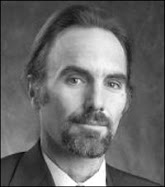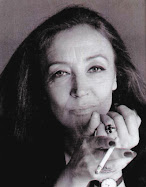
By David Paulin
Hugo Chávez's reelection victory and subsequent pledge to
deepen "21st Century" socialism in Venezuela has produced a predictable result
-- yet another exodus of Venezuelans is expected to head to Florida. Like early
waves of Cubans who fled Fidel Castro’s communism, these Venezuelans are members
of their country’s business, professional, and entrepreneurial class. They
could, to be sure, have been part of the solution to Venezuela’s poverty and
dysfunction. But Chávez saw them as part of the problem as he created class
divisions; nationalized large swaths of the economy; and
implemented currency exchange and price controls that strangled the economy and
even produced food shortages.
The ongoing exodus of Venezuela’s best and brightest – and the
increase that's expected after Chávez’s reelection -- is the subject of an
article in the Miami Herald describing how South Florida
immigration lawyers and real estate agents are gearing up for visits from
Venezuelans who have decided it’s time to get out. They're looking to buy real
estate and start businesses in South Florida, with the hope of gaining residency
and starting new lives. After suffering 14 years of Hugo Chávez – and facing six
more to come – they decided to join the estimated 200,000 or more Venezuelans
already in the U.S. – 57 percent of whom live in South Florida.
“Nothing surpasses fear as a cause for capital flight,” Enrique García, a Key Biscayne council member and real estate agent, told The Herald. Citing immigration statistics from the Department of Homeland Security, The Herald noted that the “total number of Venezuelans who have received permanent residence has been growing year after year — from a little more than 5,000 in 2002 to more than 9,000 in 2011.”
During the era of soaring oil prices in the 1970s, oil-rich Venezuela earned a nickname: “Saudi Venezuela.” But easy petro-dollars not only contributed to corruption, they fostered a culture of populism and paternalism -- what Venezuela’s poor majority expects today, and what Chavez has promised to deliver.
On the other hand, the Venezuelans settling in the U.S. are educated and can make their own way. They need no lessons in democracy, as underscored by the thousands of Venezuelans who on election day rode in bus caravans to New Orleans, where they stood in long lines at Venezuela’s consulate to vote for opposition challenger Henrique Capriles.
They couldn't vote in Miami because Chavez had closed the consulate there earlier this year, following a spate with Washington over the State Department's expulsion of Venezuela’s consul general in Miami, Livia Acosta Noguera. It concerned recordings of her allegedly discussing an Iranian plot to carry out a cyber-attack against the U.S.
That created a problem for 20,000 Venezuelan voters in Florida, Georgia, North Carolina and South Carolina who'd registered to vote at the Miami consulate. Accordingly, 8,500 of them cast their ballots at Venezuela’s consulate in New Orleans -- virtually taking over the city as they waited in long lines to vote, and passing the time by singing their country's lovely national anthem.
“Nothing surpasses fear as a cause for capital flight,” Enrique García, a Key Biscayne council member and real estate agent, told The Herald. Citing immigration statistics from the Department of Homeland Security, The Herald noted that the “total number of Venezuelans who have received permanent residence has been growing year after year — from a little more than 5,000 in 2002 to more than 9,000 in 2011.”
During the era of soaring oil prices in the 1970s, oil-rich Venezuela earned a nickname: “Saudi Venezuela.” But easy petro-dollars not only contributed to corruption, they fostered a culture of populism and paternalism -- what Venezuela’s poor majority expects today, and what Chavez has promised to deliver.
On the other hand, the Venezuelans settling in the U.S. are educated and can make their own way. They need no lessons in democracy, as underscored by the thousands of Venezuelans who on election day rode in bus caravans to New Orleans, where they stood in long lines at Venezuela’s consulate to vote for opposition challenger Henrique Capriles.
They couldn't vote in Miami because Chavez had closed the consulate there earlier this year, following a spate with Washington over the State Department's expulsion of Venezuela’s consul general in Miami, Livia Acosta Noguera. It concerned recordings of her allegedly discussing an Iranian plot to carry out a cyber-attack against the U.S.
That created a problem for 20,000 Venezuelan voters in Florida, Georgia, North Carolina and South Carolina who'd registered to vote at the Miami consulate. Accordingly, 8,500 of them cast their ballots at Venezuela’s consulate in New Orleans -- virtually taking over the city as they waited in long lines to vote, and passing the time by singing their country's lovely national anthem.
This YouTube clip provides a look at some of the
Venezuelans whom Chavez has demonized and intimidated in his quest for “social
justice” and “21st Century” socialism.
Originally published at The American Thinker blog





